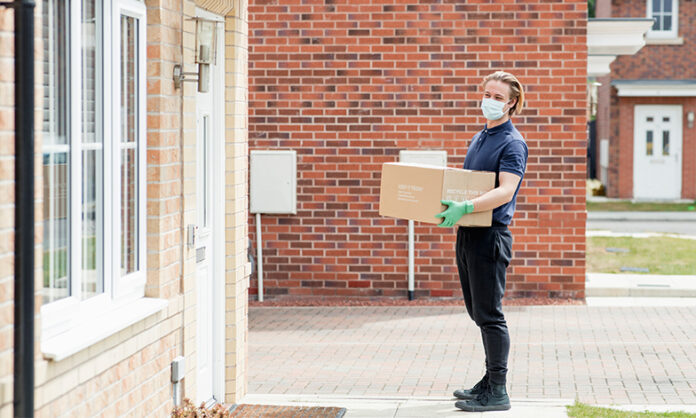Volunteers around the country who helped serve their local communities during the recent lockdown formed a crucial part of the national response to the coronavirus pandemic, new research has found.
Mobilising Volunteers Effectively (MoVE) brought together the Universities of Sheffield, Hull and Leeds to see how best volunteers can be deployed to help vulnerable people during the coronavirus pandemic.
The first findings from the 18 month study found that informal volunteering and ‘good neighbourliness’ have been key to providing support and serving communities. Finding also that there is a necessity to ‘free’ local communities to respond quickly to the needs in their own area; empowering volunteers and taking a less bureaucratic approach to emergency responses.
From helping to collect shopping and medication for shielding residents, to befriending and transporting patients home who have been discharged by the NHS, thousands of volunteers mobilised across the UK; often through informal channels such as WhatsApp and Facebook.
The first phase of the research – funded by the Economic and Social Research Council (ESRC) as part of the UK Research and Innovation’s rapid response to COVID-19 – invited local authorities and voluntary and community sector (VCS) organisations in England, Scotland and Wales, to be interviewed and they were asked to reflect on key lessons from the national lockdown period.
Professor Joe Cook, co-investigator of the study from the Hull University Business School, said: “By working with local authorities and the VCS, the new research helps to understand the important role played by volunteers and maximise learning as we head into a second wave.
“If we are to harness the energy and goodwill that communities have shown in the last six months, we will need to invest in our communities. Their flexibility was crucial to the speed and effectiveness of responses, and in many cases challenges the more conventional notions of volunteering.”
However, participants in the research also reflected on the frustration that many of these volunteers were under-utilised, often never called upon and that they had trouble connecting volunteers into organised local responses.
Dr Harriet Thiery, MoVE researcher from the University of Sheffield, said: “Underpinning many of the concerns about the national volunteer schemes has been a view that these processes represented a top-down, centralised response to local challenges. Consequently, the participants were unable to understand and reflect the unique needs, assets and resources of different communities.
“By contrast, local volunteering schemes in many cases were able to respond quickly, playing a crucial role feeding and supporting their communities during the time of crisis. The VCS adapting their activities to join this decentralised approach to mobilising volunteers will remain extremely valuable during any second wave.”
The findings are significant following the recent publication of a UK Parliamentary report by Daniel Kruger MP: Levelling up our communities: proposals for a new social covenant commissioned by the Prime Minister.
In his introduction to the report, the PM and former political secretary states that it “sets out a vision for a more local, more human, less bureaucratic, less centralised society in which people are supported and empowered to play an active role in their neighbourhoods.”
The findings from the MoVE project’s first phase offer important insights and caveats around the government adopting such an approach.
Dr Fiona Walkley, from Hull University Business School, said: “We hope the findings from this research will help maximise the effectiveness of volunteer responses and address the logistical challenges around how best to coordinate the support for those most vulnerable in their communities during a time of crisis.”







